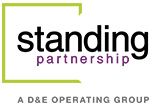Supply Chain Sustainability Issues: The Next ESG Hurdle
Chances are, you have a handle on your company’s performance when it comes to ESG, but what do you know about your supply chain’s sustainability?
Sustainability has become core to how most companies operate, from reducing their environmental impact to embracing DEI efforts to engaging with key stakeholders. Chances are, you have a pretty good idea how your own company performs when it comes to ESG – but what do you know about your suppliers? Supply chain sustainability issues are concerns for many companies today.
Did you know that an estimated 90% of a company’s environmental impact comes from its supply chain, according to EcoVadis? Companies cannot meet carbon neutrality without addressing Scope 3 emissions. And do you know how your suppliers are performing on social issues, such as fair labor practices, DEI and community impacts? After all, anything happening at the supplier level is also part of your product’s total footprint – and your reputation.
The next big push in ESG will be how companies ensure sustainability across the whole value chain, which includes understanding what your suppliers are doing and choosing to work with those who are best managing their ESG risks.
Having a sustainable supply chain benefits your business. A recent EY survey shows that companies who have focused on supply chain sustainability expect to have a better handle on operational risks, increased cost savings and revenue opportunities, and to provide increased shareholder value. On the flip side, working with suppliers who don’t uphold your same ESG values can become a huge business risk.
This is perhaps the most daunting ESG task to date, and even major companies with robust ESG programs are grappling with how best to measure the impact of their entire value chain and tackle any supply chain sustainability issues. Here are four steps to get started on a more sustainable supply chain journey:
- Research your major suppliers to understand how they are performing in areas such as environmental impact, employee safety, DEI and product stewardship. Start with the supplier’s sustainability report if they have one. If they are a publicly traded company, check their sustainability scores from ratings agencies such as Sustainalytics, MSCI, Just100, EcoVadis and Dow Jones Corporate Sustainability Assessment.
- Assess suppliers directly. For example, an electronic survey as part of the annual procurement process can help you collect important data about ESG performance as well as get a snapshot of how all your suppliers are stacking up.
- Once you have an idea of your current situation, work with procurement to set targets for what you want a sustainable supply chain to look like. If you want to promote more diversity, establish targets around working with more minority-owned or Indigenous- and Native-owned businesses. If you’re concerned about emissions, think about how you can hold your suppliers to emissions standards that help you achieve your own goals. Your targets should align with what matters most to your key stakeholders and the success of your business.
- Communicate what commitments you have set related to your supply chain, and report on your progress towards meeting these. That progress may take the form of helping existing suppliers adapt to meet these targets or seeking out additional suppliers that already can check these boxes. One of the best ways to communicate these efforts is in an annual sustainability report, where you can show how your supply chain efforts ladder up to your bigger ESG goals.
We help companies report on their sustainability and the sustainability of their supply chains. If you are just starting on this journey or looking to take your reporting to the next level, we’d love to talk. Contact us at inquiries@standingpartnership.com.

